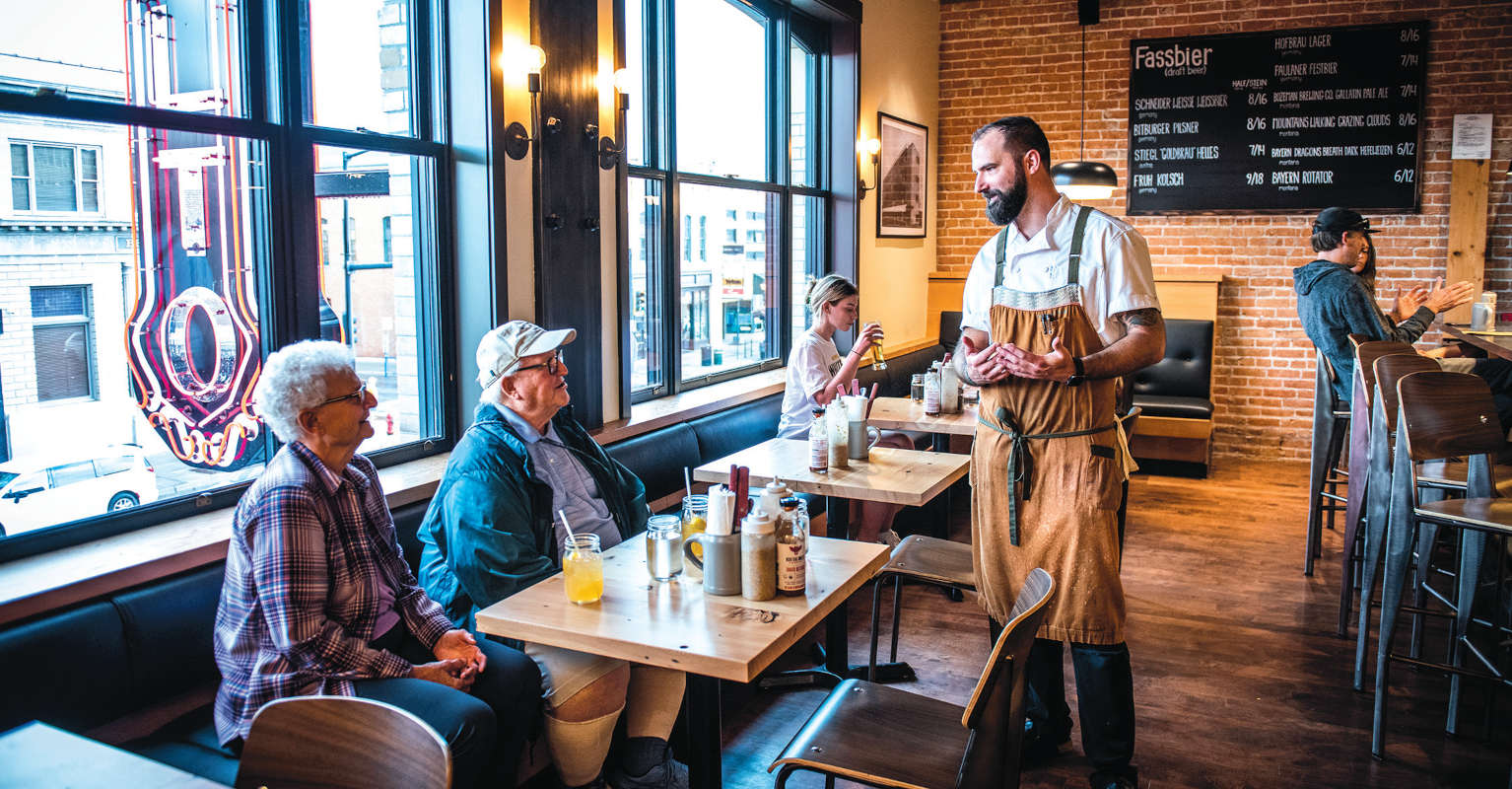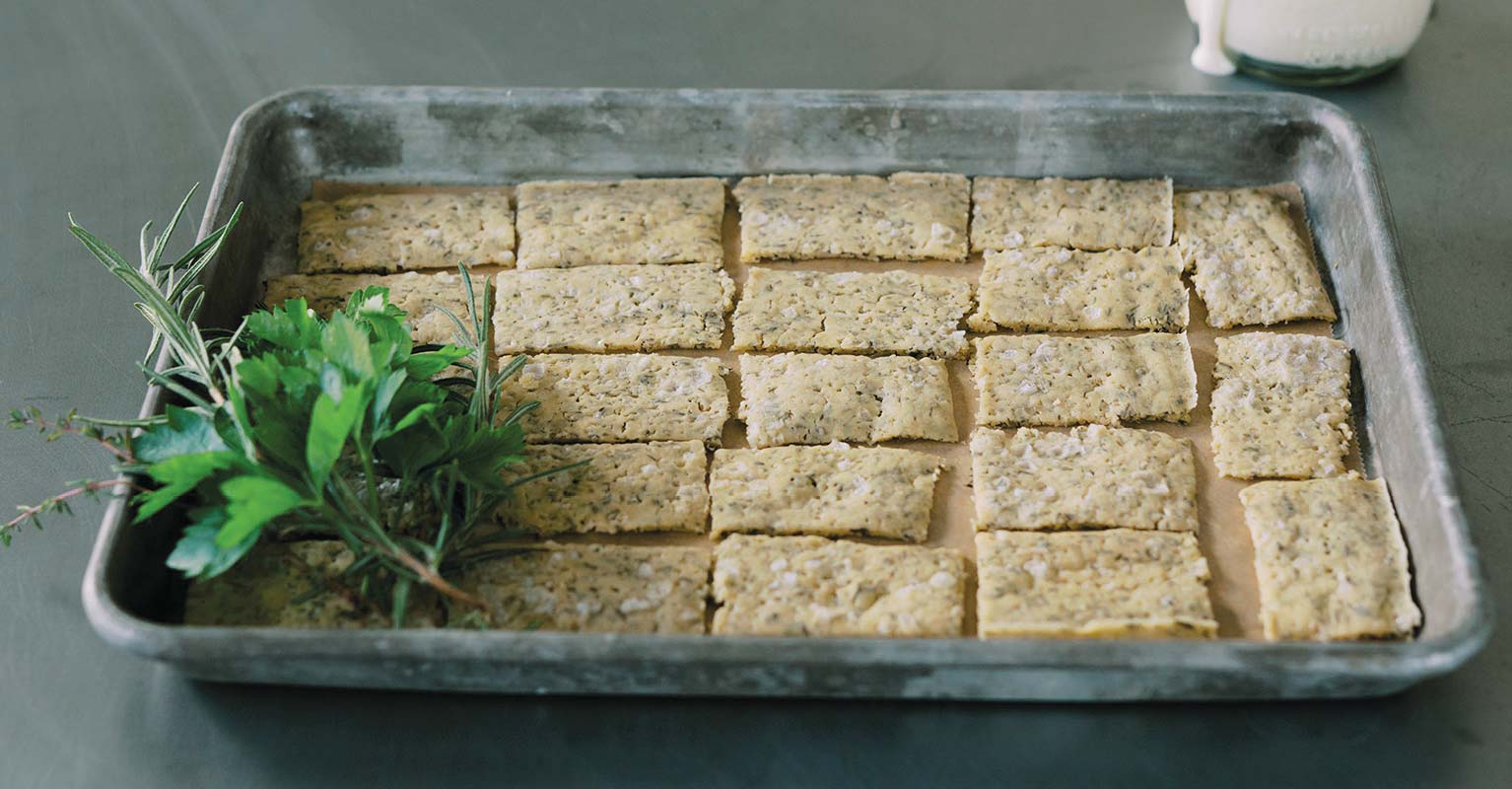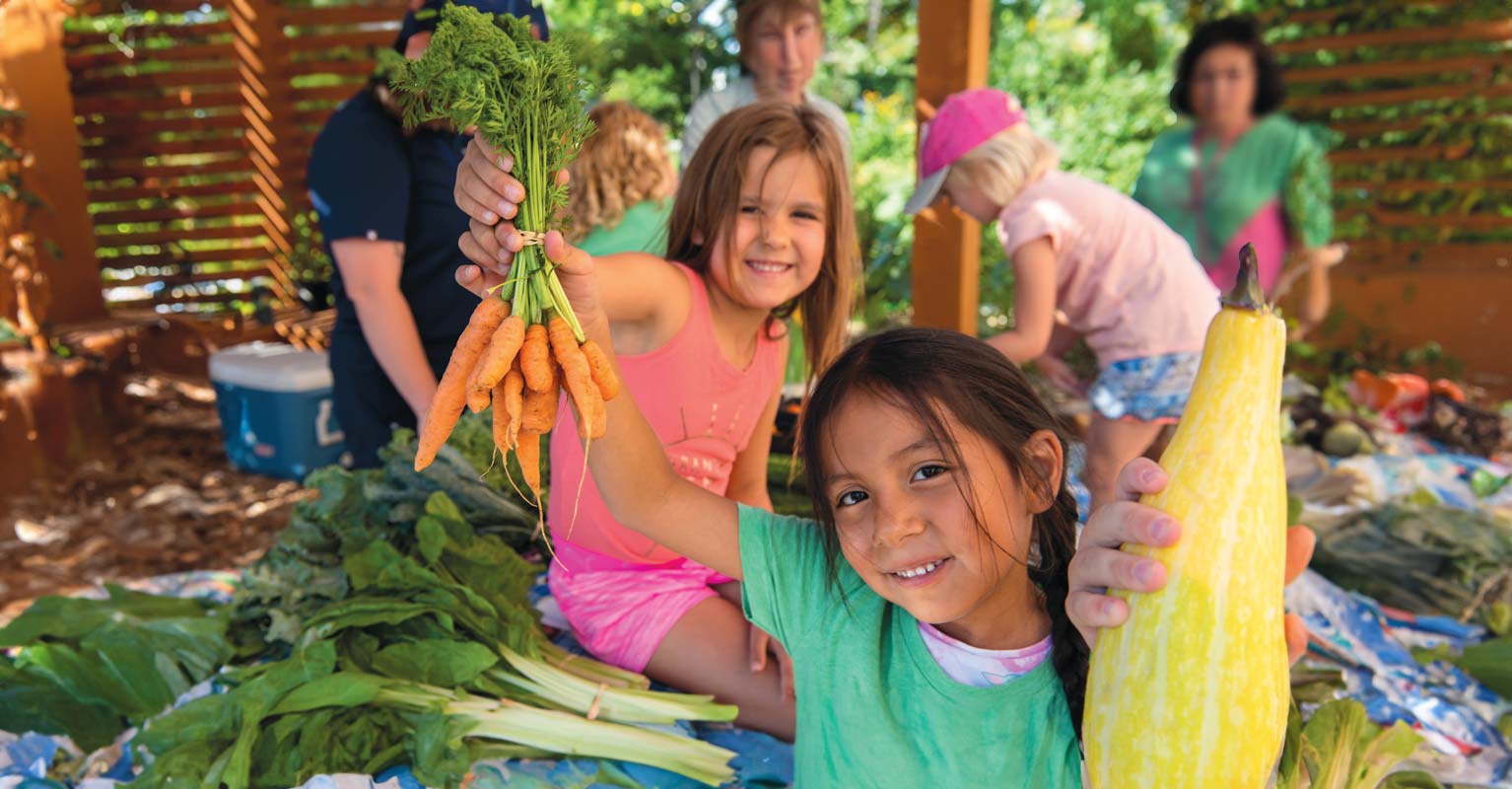Jaret Foster of Tournant rubs rosemary on a hog as a part of his preparation of slow-cooked pork and beef that utilized cinderblock pits, Argentinian iron crosses, and a fire dome.
Putting Culture Back in Agriculture
A meandering dirt road outside of Helmville in west-central Montana traces the contours of the land, eventually leading to the foothills of the Garnet Range. This place, stewarded for five generations by the Mannix family and a historic travel corridor for the Kootenai, Salish, Nez Perce, Blackfeet, and Pend d’Oreille tribes, is home to grizzly bears, elk, deer, and rotationally grazed cattle. Here, in a wide grassy meadow backdropped by sage and low-growing prairie wildflowers, resting beneath a quintessential Montana big sky, it will become the confluence of past, present, and future; science and philosophy; rancher, wildlife advocate, and chef.
This June, the Mannix family will host the Old Salt Festival after a successful inaugural event last year that drew 1,600 people. Held June 21–23, this three-day celebration of ranching, land stewardship, and wild places features live music, wood-fired cooking, a market with products from Western artisans, readings by Western authors, and discussions about conservation and land stewardship. Organized by the Old Salt Co-op, the festival was created by ranchers committed to rebuilding the meat business in Montana.
“At the end of the day, we are focused on the fact that, of all the meat that is eaten in Montana, less than 3 percent is raised and processed here,” says Cole Mannix, president of Old Salt Co-op. Four ranches are currently members of the meat company—J Bar L Ranches, Sieben Live Stock Co., LF Ranch, and Mannix Ranch—and together they supply beef, lamb, and pork.
“We are trying to rebuild relationships between customers and producers in Montana,” Mannix says. “What we have in common is each other and the land. Land is kin. Land is kin. Land is kin. We want this festival to highlight just how much we have in common, and how much we need to continuously improve our stewardship of the land.”
With the option of on-site tent and RV camping, as well as the addition of glamping this year, festival-goers can stay for the weekend or just stop in for the day. Either way, they’ll be treated to a professionally prepared meal à la Montana—one that’s included in the price of admission. Last year, guest chefs included Livingston-based Eduardo Garcia of Montana Mex (read “Ingredients for Living Your Passion” available at ediblebozeman.com/features/ingredients-for-living-your-passion), who prepared a traditional barbacoa with goat from Healthy Meadows in Red Lodge; live-fire cooking experts Jaret Foster and Mona Johnson of Tournant, who prepared a mix of whole lamb and beef; and Portland-based Elias Cairo, who treated the crowd to his charcuterie.
“I witnessed a whole lot of effort and intention,” says Garcia, who is known for his Mexican-inspired cuisine, which is showcased in his current video series “Big Sky Kitchen with Eduardo Garcia” available on The Magnolia Network and Discovery+, and production of the documentary Charged, which follows his recovery after being electrocuted while hunting in Paradise Valley. “There is such a palpable energy to a pop-up village and gathering of people celebrating commonality. In today’s world, I see local economics as a special ingredient in how we connect and experience this life.”
Local food is more than the frozen product—it’s the people who raise it, it’s the landscapes that sustain it, it’s the hands that prepare it, and it’s the mouths that consume it.
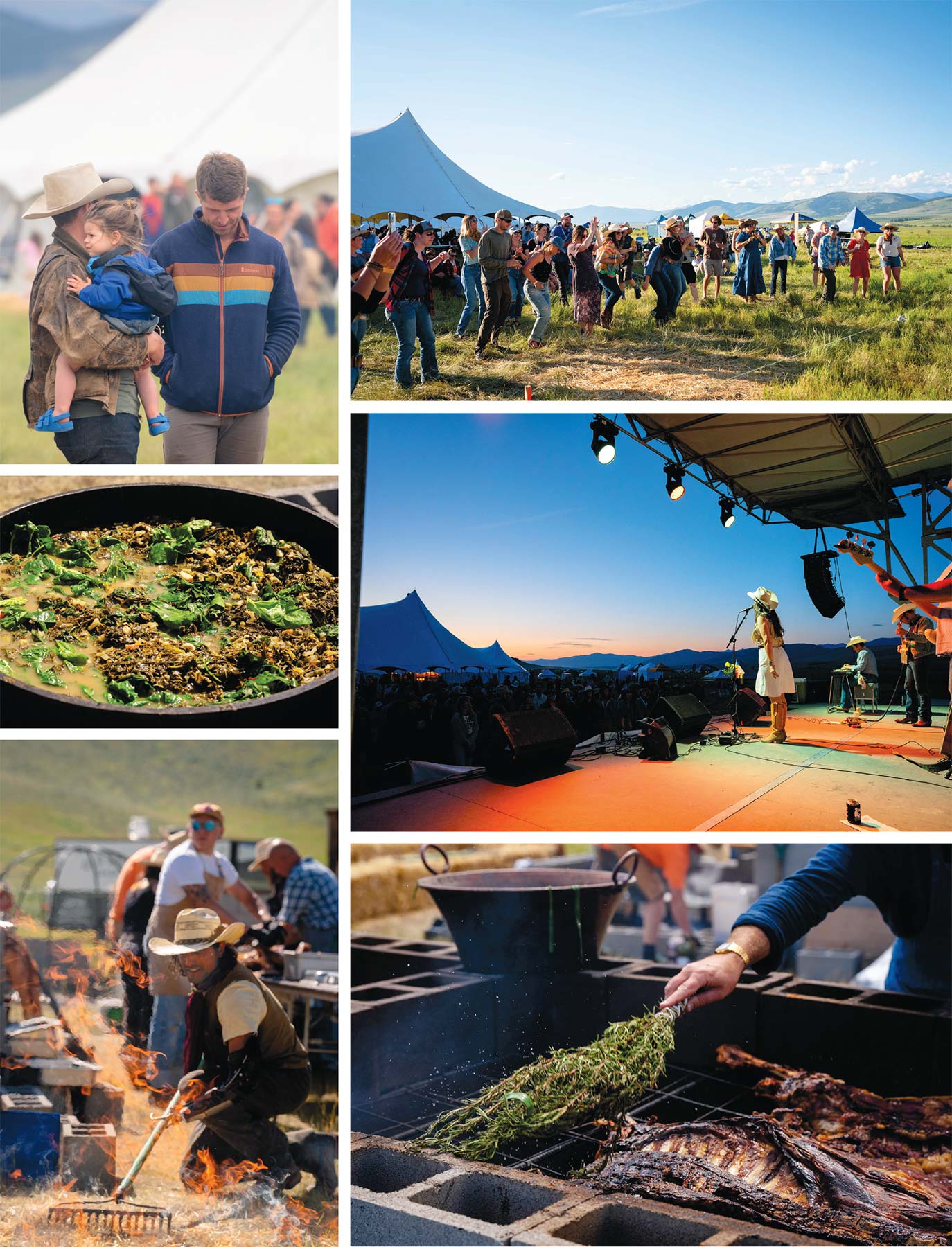
Garcia will be among those familiar faces returning to this year’s event, with plans to prepare a meal featuring a combination of local minerals, plants, and Old Salt beef, with flavor accents from his cultural lineage and Montana-built brand Montana Mex. Situated just beyond the cinderblock ovens, the stage will once again host songwriter Sterling Drake as well as his curated lineup of Americana musicians. Among other events, last year’s festival featured a panel discussion with Mannix, Kate Kavanaugh of Western Daughters Butcher Shop in Denver, Steward Lending founder Dan Miller, and Wild West Local Foods President Wyatt Nelson. Facilitated by Mountain & Prairie Podcast host Ed Roberson, this panel addressed some of the challenges and opportunities in rebuilding a resilient regional food system.
When asked about the greatest hurdles in this task, Kavanaugh said that in addition to addressing the slim operating margins eked out by producers, butchers, and distributors, we need to repair what’s become a growing disconnect between people involved in the system.
“How do we change the story that we’re telling ourselves, and how do we build a cooperative ecosystem?” she said, adding that she sees Old Salt Co-op working to solve this by “putting culture back in agriculture. We have lost so much of this community basis, of knowing one another, of shaking one another’s hands, of having that relationship of where our food comes from, with the people that grow our food, and restoring this idea of story as a component of nutrient density.”
For Mannix and his partners in Old Salt Co-op, ethical land stewardship is part of the solution—that and opening two restaurants in Helena, establishing a vertically integrated processing facility, and throwing a festival-sized party.
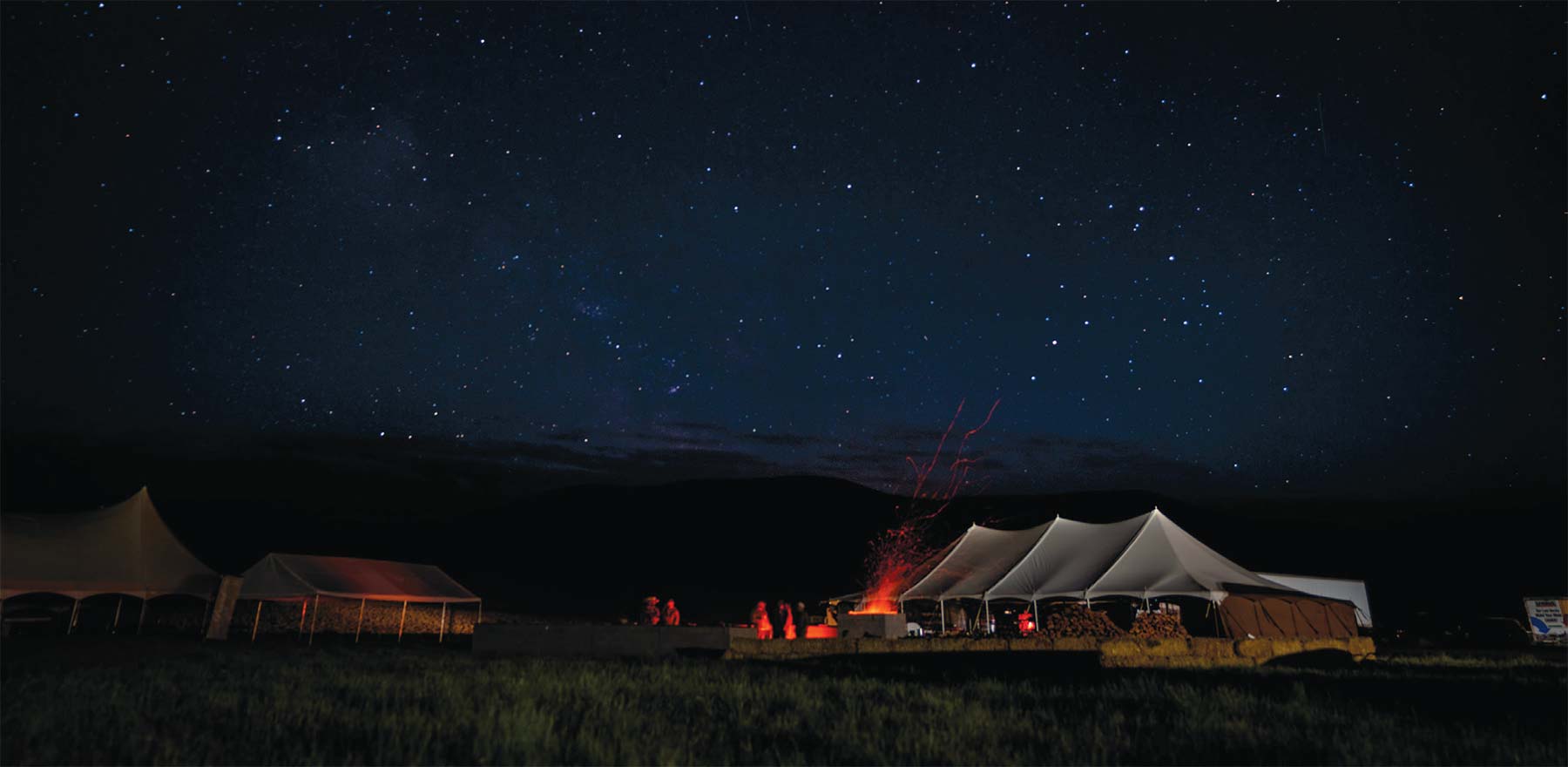
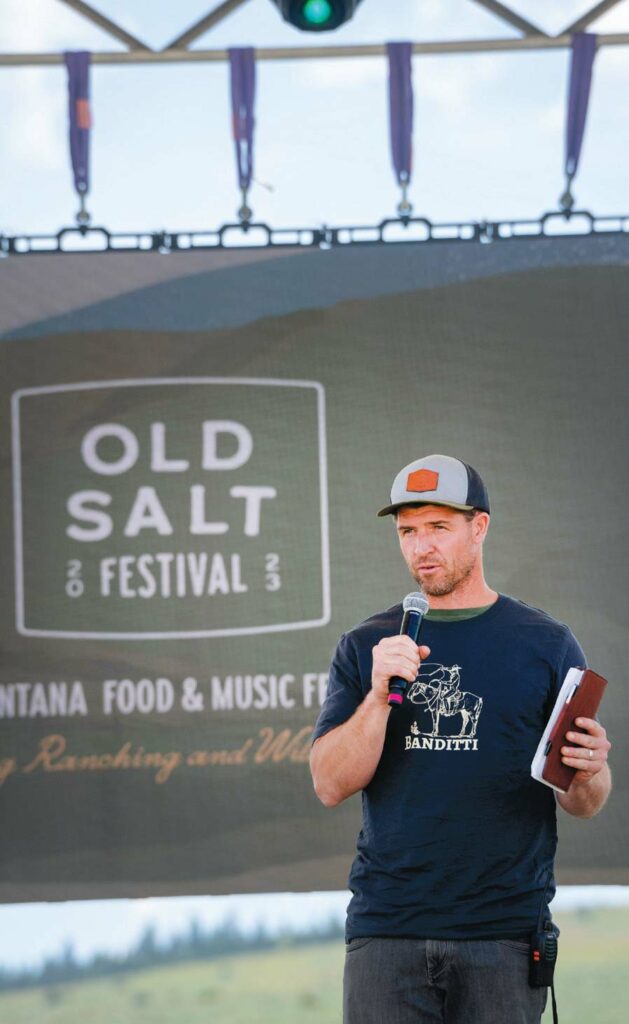
“We want this festival to highlight just how much we have in common, and how much we need to continuously improve our stewardship of the land.” —Cole Mannix, president of Old Salt Co-op
Cole Mannix, president of Old Salt Co-op, speaks during the festival, held in June on his family’s ranch near Helmville, Montana
“Regenerative agriculture is more like a stream, and the predominant agricultural paradigm is more like a canal,” Mannix says. “We’re trying to move back toward a stream, where all of the ‘inefficiencies’—the bends, dips, logs, rocks, and vegetation—allow life to set up shop. Both a stream and a canal get the water from point A to point B, but there’s a lot more beauty in the stream.”
Mannix says this applies to land management as well as selling the final product. Local food is more than the frozen product—it’s the people who raise it, it’s the landscapes that sustain it, it’s the hands that prepare it, and it’s the mouths that consume it.
Entrenched in this ethos, Mannix offers an open invitation: Come to the Old Salt Festival to rub elbows with your neighbors and celebrate in high Montana style.
- Tickets for the 2024 Old Salt Festival held June 21–23 are on sale now. As a community-focused event, children 13 and under get in free. For more information visit oldsaltco-op.com.


